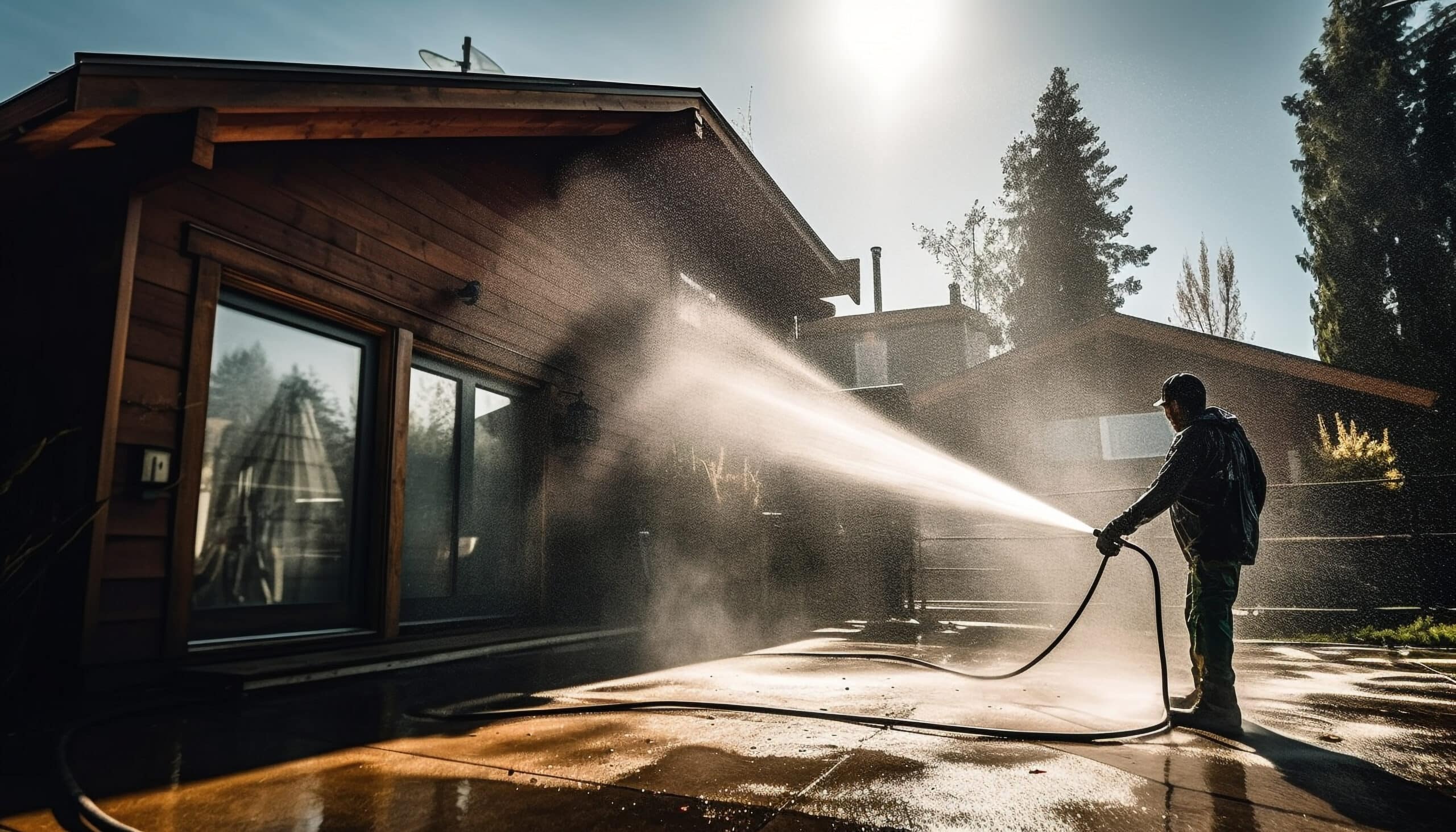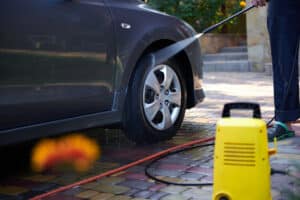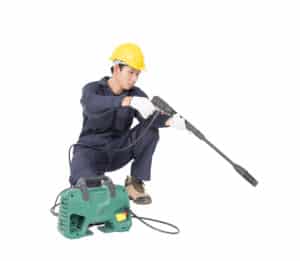How to Maintain and Store a Gasoline Pressure Washer Properly
Key Takeaways
- Regular maintenance tasks are essential for maintaining the longevity and optimal performance of a gasoline pressure washer.
- Proper storage tips should be followed to ensure the longevity of the pressure washer, including draining water, storing in a clean and dry location, and using a fuel stabilizer or emptying the fuel tank for long-term storage.
- To prevent corrosion, routine maintenance tasks should be performed, including checking for leaks, cleaning the spark arrestor, inspecting and cleaning fuel lines, and properly storing the pressure washer after each use.
Pressure washers are powerful tools that can make cleaning tasks much easier and more efficient. Whether you use a pressure washer for professional purposes or just for occasional cleaning around the house, it is important to properly maintain and store your gasoline pressure washer to ensure its longevity and optimal performance. In this article, we will discuss the steps you need to take to maintain and store your pressure washer properly.
Regular Maintenance Tasks
To keep your gasoline pressure washer in good working condition, it is essential to follow a regular maintenance schedule. Here are the tasks you should perform:
1. Before Each Use
- Check for oil leaks
- Check for fuel leaks
- Check for water leaks
- Check fuel level
- Check oil level
- Check pump oil level (if required)
- Check water inlet screen
- Check high-pressure hose
- Check air filter
2. After the First 5 Hours of Use
Change the engine oil to ensure proper lubrication and prevent engine damage.
3. After 25 Hours of Use or Yearly
Clean the air filter to maintain optimal airflow and prevent debris from entering the engine.
4. After 50 Hours of Use or Yearly
Change the engine oil again to remove any contaminants and ensure smooth operation.
5. After 75 Hours of Use or Yearly
Inspect and clean the spark arrestor and muffler to prevent exhaust blockage and ensure proper engine performance.
6. After 100 Hours of Use or Yearly
Check, clean, adjust, or replace the spark plug to maintain efficient combustion and prevent engine misfires.
7. After 200 Hours of Use or Every 2 Years
- Replace the air filter
- Replace the fuel filter
- Check fuel lines for any damage
In addition to these maintenance tasks, it is important to regularly check for leaks (fuel, oil, and water), inspect and take care of the nozzles, spray gun, hose, and water inlet screen. Maintaining proper fluid levels (fuel, oil, and pump oil if applicable), cleaning or replacing the air filter, and changing the engine oil are also crucial for the optimal performance of your pressure washer. Furthermore, you should regularly maintain the spark plug, inspect the fuel lines, tank, and fuel filter for any damage, and properly store the pressure washer after each use.
Proper Storage Tips
Properly storing your gasoline pressure washer is just as important as regular maintenance. Here are some tips to ensure its longevity:
1. After Each Use
- Run water through the system to remove excess soap and pressure.
- Turn off the engine and pull the spray trigger to remove any remaining water and pressure.
- Disconnect the pressure hose, spray gun, and mains water hose.
- Roll up and drain water from the pressure hose, and store it on a hook.
- Place the nozzle and gun in a storage place on the machine.
- Pull the engine recoil a few times to further drain the pump.
2. Store in a Proper Location
- Store the pressure washer in a clean, dry location away from furnaces or dryers.
- Use a protective, breathable cover to prevent dust.
3. Long-Term Storage
If you plan to store your pressure washer for an extended period, consider the following:
- Use a fuel stabilizer or empty the fuel tank to prevent fuel degradation or damage to the carburetor.
- Change the oil before storage to prevent contaminants from sitting in the engine.
By following these maintenance and storage tips, you can ensure that your gasoline pressure washer remains in excellent condition and delivers optimal performance whenever you need it.
Preventing Corrosion
To prevent corrosion in your gasoline pressure washer, it is crucial to perform routine maintenance tasks and take appropriate precautions. Here’s what you should do:
- Regularly check for oil leaks, fuel leaks, and water leaks to identify and address any issues promptly.
- Clean and maintain the spark arrestor to prevent exhaust blockage and corrosion.
- Inspect and clean the fuel lines, tank, and fuel filter to prevent clogs and ensure proper fuel flow.
- Properly store the pressure washer after each use to protect it from moisture and other environmental factors.
By following these steps, you can significantly reduce the risk of corrosion in your pressure washer and extend its lifespan.
Related Websites:
FAQs:
Q: What are the benefits of using a gasoline pressure washer?
Using a gasoline pressure washer offers several benefits. It provides powerful cleaning capabilities, making it ideal for removing tough dirt, grime, and stains. Gasoline pressure washers are also portable and do not require an electrical power source, allowing for more flexibility in outdoor cleaning tasks.
Q: How often should I clean and inspect my gasoline pressure washer?
Regular cleaning and inspection of your gasoline pressure washer is essential for maintaining its performance and longevity. It is recommended to flush the system after each use and clean the nozzles, filters, hoses, and connections regularly. Aim to inspect and clean your pressure washer at least once a month, or more frequently if you use it frequently or in demanding conditions.
Q: What are some important engine maintenance tips for a gasoline pressure washer?
To ensure optimal performance of your gasoline pressure washer’s engine, it is crucial to check and change the oil regularly. Proper fuel storage and usage, such as using fresh fuel and stabilizers, is also important. Additionally, clean the air filter regularly to prevent clogging and maintain efficient airflow.
Q: How should I store my gasoline pressure washer?
Proper storage is key to prolonging the lifespan of your gasoline pressure washer. Before storing, drain the fuel and oil properly, clean and dry the machine, and store accessories separately. Choose an appropriate storage location that is protected from extreme temperatures and humidity. Cover the pressure washer to prevent dust and debris accumulation.
Q: What are some common issues with gasoline pressure washers and how can I troubleshoot them?
Common issues with gasoline pressure washers include starting problems, low pressure, and nozzle blockages. If your pressure washer fails to start, ensure the fuel and oil levels are sufficient and the spark plug is in good condition. For low pressure, check for clogged nozzles or a faulty pump. Cleaning or replacing the nozzle and performing pump maintenance can usually resolve this issue.






